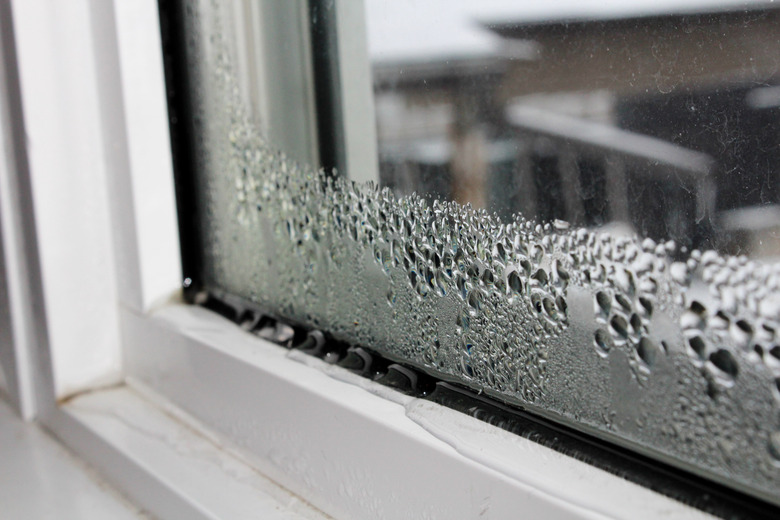Examples Of Evaporation & Condensation
Condensation and evaporation are two processes by which matter changes its phase. Condensation is the transition from a gaseous phase to a liquid or solid phase. Evaporation, on the other hand, is the transition from liquid to gas. The processes of condensation and evaporation occur frequently, both in nature and around the house.
Cloud Cover
Cloud Cover
Clouds are an example of condensation. When clouds form, the temperature and pressure in their specific region is such that water vapor changes to liquid water. The formation of clouds requires nucleation sites, or particles on which condensation can take place. When the temperature is very low, the water vapor may eventually turn into ice or snow. The air is said to be saturated if it is at 100 percent humidity. The temperature at which the air is saturated is called the dew point. If the temperature falls below the dew point, water will condense. If you see dew condensing on plants outside, this is an instance of the same phenomenon: The temperature is such that water vapor in the air turns into liquid water.
Containers in the Refrigerator
Containers in the Refrigerator
When you put a container of hot food in the refrigerator and cover it, chances are that it will have liquid water on the inside when you next remove it. This happens because the water vapor within the container is cooled and becomes liquid water. Like water vapor in clouds, water vapor from leftovers must also have a site for condensation. Hence, you will often find a buildup of water on the top and sides of your container.
Containers of Liquid
Containers of Liquid
If you leave a cool jug of milk or some other bottle of liquid out on the table for a while, you may notice that it begins to "sweat" — that is, tiny droplets of water form on the outside of the jug. This is another instance of condensation. The temperature of the jug is cooler than that of the air around it. This coolness causes water vapor in the air to condense on the side of the jug. Again, water vapor molecules must have a site on which to condense. Hence, they condense on the side of the milk jug.
Fire Extinguisher
Fire Extinguisher
The processes of condensation and evaporation are not limited to water. Most fire extinguishers are filled with liquid carbon dioxide under extremely high pressure. When the trigger is pulled on a fire extinguisher, this releases the carbon dioxide into a lower-pressure environment. In this new setting, the liquid carbon dioxide quickly turns into gas. In other words, it evaporates.
Cite This Article
MLA
Murmson, Serm. "Examples Of Evaporation & Condensation" sciencing.com, https://www.sciencing.com/examples-evaporation-condensation-19376/. 27 April 2018.
APA
Murmson, Serm. (2018, April 27). Examples Of Evaporation & Condensation. sciencing.com. Retrieved from https://www.sciencing.com/examples-evaporation-condensation-19376/
Chicago
Murmson, Serm. Examples Of Evaporation & Condensation last modified March 24, 2022. https://www.sciencing.com/examples-evaporation-condensation-19376/
